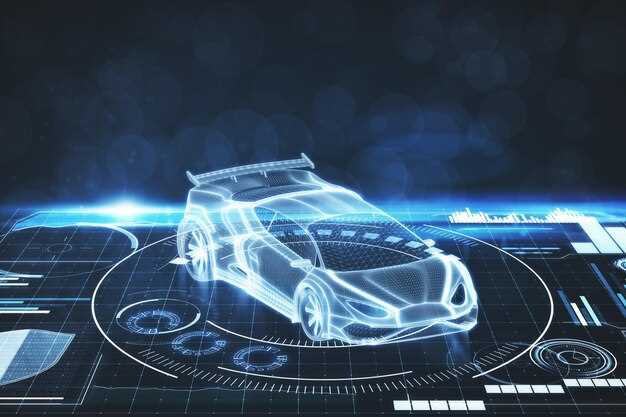Hybrid Technology in Volkswagen Motorsport

The integration of hybrid technology in VW motorsport represents a significant leap forward in sustainable racing. As environmental concerns grow, the automotive industry is stepping up to meet green standards without compromising performance. By embracing hybrid systems, Volkswagen demonstrates its commitment to not only innovation but also to reducing the ecological footprint typically associated with racing.
Volkswagen’s approach to hybrid technology merges traditional combustion engines with electric power, resulting in vehicles that are both powerful and efficient. This amalgamation allows for enhanced acceleration and performance on the racetrack while simultaneously lowering emissions. As motorsport increasingly shifts towards greener alternatives, VW showcases how competitive racing can align with sustainable practices.
The development of hybrid racing vehicles is not merely an experiment; it paves the way for future advancements that could redefine the motorsport landscape. With an eye towards not only maintaining speed but also achieving green initiatives, Volkswagen leads the charge in demonstrating that hybrid technology can coexist with tradition in the world of competitive racing.
Advanced Hybrid Powertrains in Volkswagen Racing Vehicles

The integration of advanced hybrid powertrains in Volkswagen racing vehicles marks a significant milestone in motorsport technology. By harnessing the potential of both conventional combustion engines and electric motors, these green innovations deliver enhanced performance and efficiency, setting new standards in the racing world.
Volkswagen’s commitment to green technology has revolutionized their approach to competitive racing. The hybrid powertrains utilize energy recovery systems that capture kinetic energy during braking, converting it into electrical energy. This stored power can then be deployed to provide an additional boost during acceleration, improving overall speed without compromising on emissions.
One of the key advantages of Volkswagen’s hybrid tech is its adaptability across various racing formats. Whether in rallying or touring car competitions, the flexibility of hybrid systems allows for optimized performance tailored to specific circuit requirements. This adaptability ensures that drivers can maintain an edge over competitors, leveraging both power and efficiency.
Incorporating lightweight materials and advanced aerodynamics alongside the hybrid technology further enhances performance. Volkswagen engineers continuously refine these components to achieve superior handling and speed, making their racing vehicles not just green, but exceptionally competitive.
As motorsport evolves, Volkswagen’s hybrid powertrains exemplify the fusion of sustainability and high-performance racing. This combination not only demonstrates their dedication to environmental responsibility but also positions them as front-runners in the future of motorsport technology.
Impact of Hybrid Technology on Race Performance and Strategy
Hybrid technology has revolutionized the performance dynamics in motorsport, particularly within the Volkswagen (VW) Motorsport realm. By integrating electric power with traditional internal combustion engines, hybrid systems enhance acceleration, reduce fuel consumption, and improve overall speed on the track.
One of the critical advantages of hybrid systems is the ability to deploy electric power for increased performance during crucial race moments. This hybrid approach allows teams to achieve optimal torque distribution, which is fundamental for rapid acceleration out of corners, ultimately impacting lap times significantly. The green tech employed not only boosts speed but also contributes to sustainability, reducing the carbon footprint associated with high-performance racing.
Race strategy is also profoundly influenced by hybrid technology. Teams can now plan energy management more effectively, deciding when to utilize the electric boost for overtaking or defending positions. By monitoring battery usage and regenerative capabilities, drivers can maximize their performance while adhering to regulations aimed at promoting environmentally friendly practices.
Moreover, hybrid innovations can provide teams with data analytics advantages. Detailed telemetry helps in understanding how to balance power usage between electric and combustion engines, leading to refined race strategies that align with specific track conditions and competitor tactics.
In conclusion, hybrid technology is not merely a trend in Volkswagen Motorsport; it is a strategic evolution. The blend of speed, efficiency, and data-driven decision-making places VW at the forefront of motorsport innovation, showcasing that high performance and environmental responsibility can coexist on the racetrack.
Sustainability Initiatives and Green Technologies in VW Motorsport

Volkswagen Motorsport is at the forefront of integrating sustainability into racing through innovative hybrid technologies. The commitment to reducing the environmental impact of motorsport is evident in various initiatives and advancements. These efforts encompass both the development of hybrid racing vehicles and the implementation of green technologies throughout the racing operations.
Key areas of focus for VW Motorsport include:
- Hybrid Powertrains: VW has developed cutting-edge hybrid powertrains that enhance performance while minimizing emissions. These systems combine traditional internal combustion engines with electric motors, providing efficient energy use and reduced fuel consumption.
- Energy Recovery Systems: Technologies such as KERS (Kinetic Energy Recovery System) allow for the capture and reuse of energy generated during braking. This maximizes efficiency and recovery, contributing to overall sustainability in racing.
- Biofuels and Synthetic Fuels: VW Motorsport explores the use of renewable biofuels and synthetic fuels designed to significantly lower carbon footprints. These alternatives present promising avenues for reducing the environmental impact of racing.
VW Motorsport continuously seeks to minimize waste and promote sustainability within its racing events. Various initiatives include:
- Recycling Programs: Comprehensive waste management strategies are implemented at race events to ensure that materials are recycled and repurposed effectively.
- Eco-friendly Merchandise: The production of racing merchandise is aligned with sustainability principles, using environmentally friendly materials and processes.
- Green Event Management: Racing events are organized with sustainability in mind, focusing on reducing energy consumption and carbon emissions associated with logistics and attendance.
The hybrid technology innovations by VW Motorsport illustrate a forward-thinking approach to racing, emphasizing the importance of sustainability alongside high performance. By prioritizing eco-friendly practices and advanced tech, VW continues to lead the way in creating a greener future for motorsport.



